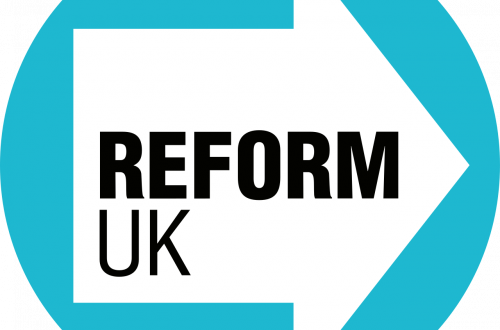This is a guest post by Al-Qanaas Al-Masri
During the last few years, the left-leaning Institute of Public Policy Research (IPPR) think tank has built up an unenviable reputation on the tricky subject of engaging with Islamists. And for good reason. Previous IPPR papers have argued that hard-line British Islamists from groups such as the Muslim Brotherhood are our best allies against al-Qaeda because ‘shared interests, if not ideologies, are paramount: it is not in our interests or theirs for terrorists to mount another attack.’
The most troubling aspect of IPPR’s previous calls for the empowerment of Islamists has however been IPPR’s underlying argument that, in order to stop jihadists blowing up middle-class white people on planes, trains and buses in western capitals, governments should sell out their own Muslim citizens to religious fascists by empowering Islamists who want to dictate every aspect of ordinary Muslims’ social, political and spiritual lives.
In the UK, for instance, IPPR seemingly believes that security for white people is best achieved through empowering Islamists from pro-jihadist, anti-Semitic groups such as the Muslim Association of Britain. IPPR is fine that these groups and their allies also believe in beatingMuslim women into a bloody submission, killing Jewish children or blowing up ordinary non-Islamist Muslims around the Middle East – just as long as these groups don’t call for attacks on Guardian-reading white people.
Of course, ‘left-leaning’ IPPR can’t actually come out with such openly white-centric arguments. Its previous reports have therefore had to go through intellectual contortions in order to reach these same conclusions – for instance by arguing that hard-line Islamists groups and the west are progressive and have ‘common values’ while also arguing that Islamists are so influential and powerful that we must engage with them or risk jihadist attacks.
This transparent carrot and stick approach is repeated in IPPR’s new report on engaging with Islamist organisations in the Middle East,‘Building Bridges, Not Walls’ which was released earlier today.
Thus we are told that ‘Islamist parties are frequently more vocal in their support for democracy than their secular counterparts’ and that they have even ‘demonstrated their willingness to share political power by entering into alliances with other -often secular – opposition groups in an effort to achieve their goals’. At the same time, however, the report claims that Islamists’ failure on issues such women’s and minority rights ‘only makes the case for engagement stronger’.
In other words, when Islamist are progressive, this is evidence that they are moderate (and that we should therefore engage with them) and that when they are regressive they are in need ‘dialogue’ (and thus we should also engage with them).
Where the carrot and stick approach does not suffice, IPPR simply makes things up. For example, on page 15 the report claims that ‘Egypt’s large community of Coptic Christians have frequently complained about their experience of discrimination and harassment at the hands of the state and of radical Islamic groups (although not the Muslim Brotherhood specifically).’
This will be news to the many Egyptian Copts who are desperately worried about the Muslim Brotherhood’s aggressive and bullying tactics. In the words of Magdi Khalil, a Coptic journalist writing in the ‘Watani’ newspaper:
‘The Copts have particular reasons to fear the Muslim Brotherhood. First is the Muslim Brotherhood’s racist declarations against the Copts. A famous fatwa (a legal pronouncement in Islam) prohibited the construction of new churches in Egypt. The fatwa was published in Al-Dawaa magazine, which speaks for the Muslim Brotherhood, in December 1980, and was issued by Mohammed Al-Khatib who was, and still is, a member of the guidance council of the Muslim Brotherhood movement. Twenty-five years later, the Muslim Brotherhood still acknowledges the validity of this fatwa.’
Khalil added that many Copts particularly fear that the Muslim Brotherhood aim to destroy the Coptic religion:
‘The Muslim Brotherhood has in mind for the Copts a sort of “religious assimilation,” and there is a big difference between the two. The Brotherhood pushes for the religious assimilation of the Coptic minority through a gradual desertion of their faith, or at the very least through a loss of their cultural and religious identity as it melts into the majority’s Islamic culture.’
One can easily find evidence of the Muslim Brotherhood’s vicious anti-Coptic campaign. Earlier this year, for instance, The Voice of Coptswebsite reported that two Muslim Brotherhood lawyers attacked a female Coptic lawyer outside an Egyptian court, tearing her clothes off, sexually molesting her and beating her unconscious. Her crime in their eyes? To have the audacity to file a lawsuit against another Muslim Brotherhood lawyer who had also physically attacked her the previous morning. Presumably IPPR doesn’t believe that such attacks are reflective of our ‘shared interests’ but rather that such attacks ‘only make the case for engagement stronger’.
The report’s other cunning ruse is to profile only ‘moderate’ Islamist groups like the Muslim Brotherhood and radical ones like Al-Qaeda and Egyptian Islamic Jihad – while lambasting the region’s totalitarian national governments. This deliberately creates the illusion that the only choice is between moderate Islamists, jihadists and the region’s incumbent dictatorships. This is spelt out in the report’s conclusion which claims that Islamists ‘occupying a middle ground between authoritarian regimes and violent jihadists … represent a political force that European and North American governments can no longer afford to ignore.’
Secular parties and movements, which might cloud the issue and undermine IPPR’s thesis, are left unmentioned. One searches the report for in vain for mention of Lebanon’s Tomorrow Party led by Saad el-Hariri, Algeria’s National Rally for Democracy party or Morocco’s Popular Party. These parties are all secular, liberal parties that are opposed both to their country’s existing dictatorships and to sectarian Islamist opposition parties.
Why does IPPR ignore the millions of Arab Muslims who vote for these parties who are on ‘our’ side, on almost every key issue? These parties are not just against al-Qaeda’s violence as Islamists narrowly are; they are against all forms of fascism whether Nasserite, Baathist or Islamist. Why then is ‘left-leaning’ IPPR siding against them, against these genuine social revolutionaries, in favour of regressive, medievalist Islamists? Why is IPPR willing to sell-out women, religious minorities and liberal democracy in favour of Islamists? Why does it not stand with the thousands of Muslim feminists, democrats and liberals who are presently under attack from both Arab dictatorships and from opposition Islamists?
I think there are several reasons for this. Above all, however, I think that IPPR’s researchers and authors genuinely don’t give a damn about Arabs or Muslims. They don’t care if Arab or Muslim women are beaten for defying religious or social mores, if religious minorities are persecuted by Islamist ‘activists’ or if the Middle East’s present dictatorships are replaced by equally fascist Islamist ones. They just don’t give a shit about Arabs or Muslims.
Just as IPPR’s calls for the empowerment of British Islamists aim narrowly at securing middle-class white people from terrorist attack, so their overseas strategy merely aims at not antagonising Islamists who might turn into jihadists and blow up white Brits.
And that is fucking disgrace from a supposedly left-wing think tank.


